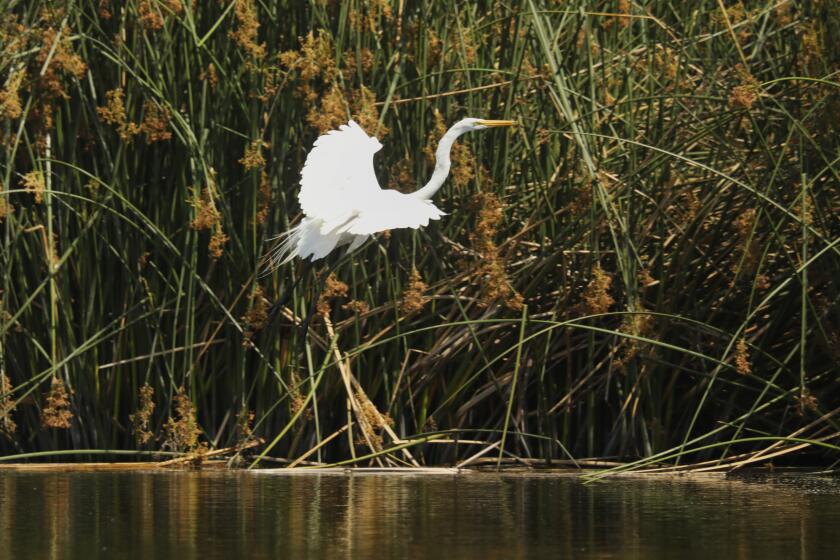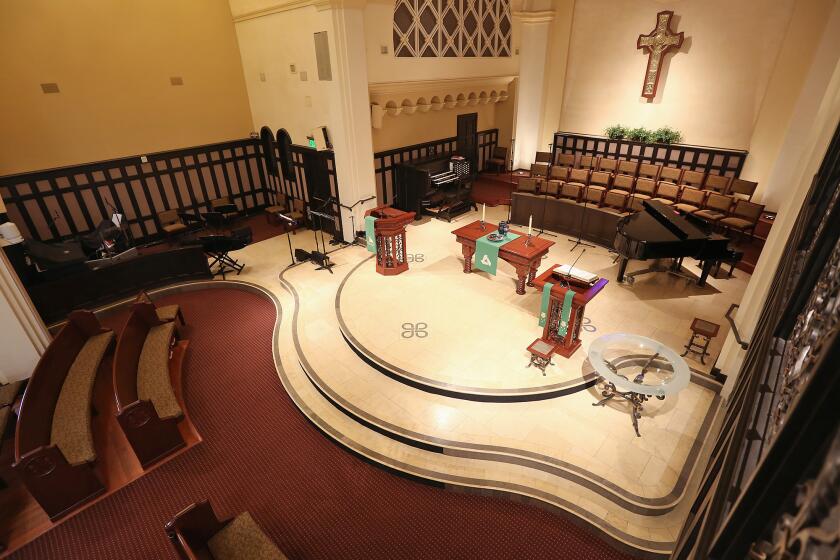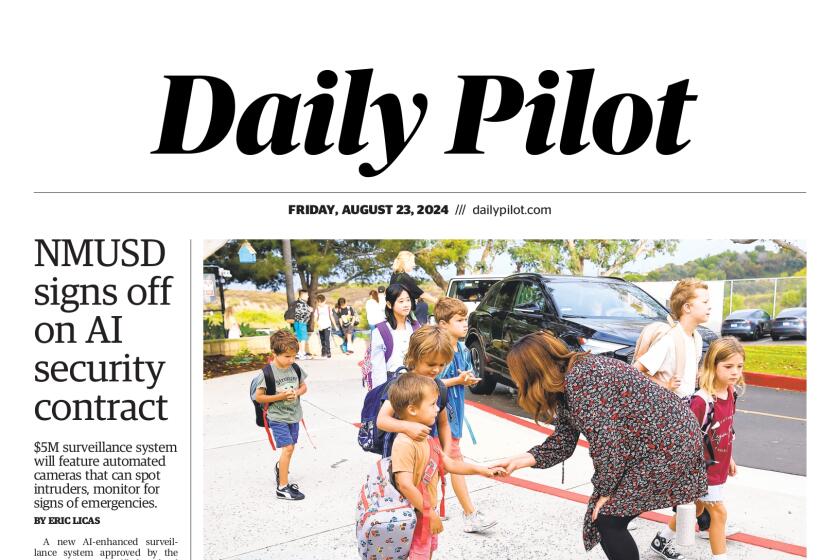Hearthside agrees to sell
Dave Brooks
Hearthside Homes developers accepted a $65-million offer Wednesday
morning from the state’s Wildlife Conservation Board to buy the lower
portion of the Bolsa Chica Mesa, a deal that could bring an end to
the 30-year debate over the fate of the wetlands by protecting them
as a natural reserve.
The agreement, which gained preliminary approval from landowner
Signal Landmark’s board of directors Wednesday, likely will transfer
103 acres of the Bolsa Chica Mesa to the California Department of
Fish and Wildlife and ensure its protection as a natural reserve.
Developers still own the 105-acre upper portion of the mesa and
plan to push forward with the construction of 379 homes. The entire
deal could fall apart if the upper development is blocked at a
California Coastal Commission hearing in August, Signal Chief
Executive Ray Pacini said.
“Indirectly, [the upper and lower portions] are linked, and at the
end of the day shareholders have to approve the sale,” he said. “In
order to get that shareholder approval, it’s also going to be
important to approve [the development].”
Environmentalists originally wanted to purchase the entire mesa
using money from Proposition 50, the Clean Water and Coastal
Protection Bond of 2002. As negotiations progressed, however, the
state board opted to settle for half the property.
“The Fish and Game opinion is that the upper area is not essential
to the habitat connections of the lower reserves,” Wildlife
Conservation Board Executive Director Al Wright said. “In the end,
Signal didn’t want to sell and we didn’t see value in purchasing the
upper mesa.”
Despite securing only half the mesa, the acquisition is being
hailed as a victory by environmentalists and local politicians who
have fought to save the area for more than three decades.
“I’m thrilled; I think it’s a big win for the community and the
environment,” Surf City Assemblyman Tom Harman said. “It’s good news.
I was pleased to be involved in a somewhat modest way trying to push
and push and push.”
Harman brokered the initial deal with former Gov. Gray Davis to
secure Proposition 50 funds for the mesa.
Environmentalists like Shirley Dettloff, a founding member of
Amigos de Bolsa Chica and former mayor and coastal commissioner,
hailed the acquisition as a compromise between conservation and
development and said that she, for one, planned to work with Signal.
“Our position now is that the development must meet all
requirements of the Coastal Act and conform to state law,” she said.
Dettloff and other Amigos de Bolsa Chica members began the fight
to save the Bolsa Chica in the 1970s when some 5,700 homes and 1,200
acres were planned complete with a marina and hotels. The plan went
through a number of changes through the years and has been perhaps
the most contentious land-use debate in the city.
In 1997, the state with mitigation funds from the ports of Long
Beach and Los Angeles, purchased 880 acres of the lower wetland areas
from the landowner for $25 million. The restoration of that area, now
populated with oil wells, has been estimated at more than $100
million.
Over the last decade, the most strident opponents of the remaining
developable land has been the Bolsa Chica Land Trust, an
environmentalist group that has advocated for the purchase of the
entire property. Members of the Land Trust could not be reached for
comment by press time.
The land purchase must now be approved by Signal shareholders and
the Wildlife Conservation Board of Directors. It must also be made
known to the joint legislative budget committee and scheduled for
public hearings.
* DAVE BROOKS covers City Hall. He can be reached at (714)
965-7173 or by e-mail at dave.brooks@latimes.com.
All the latest on Orange County from Orange County.
Get our free TimesOC newsletter.
You may occasionally receive promotional content from the Daily Pilot.



